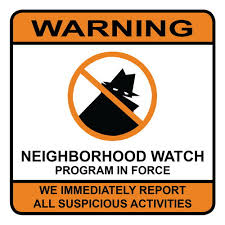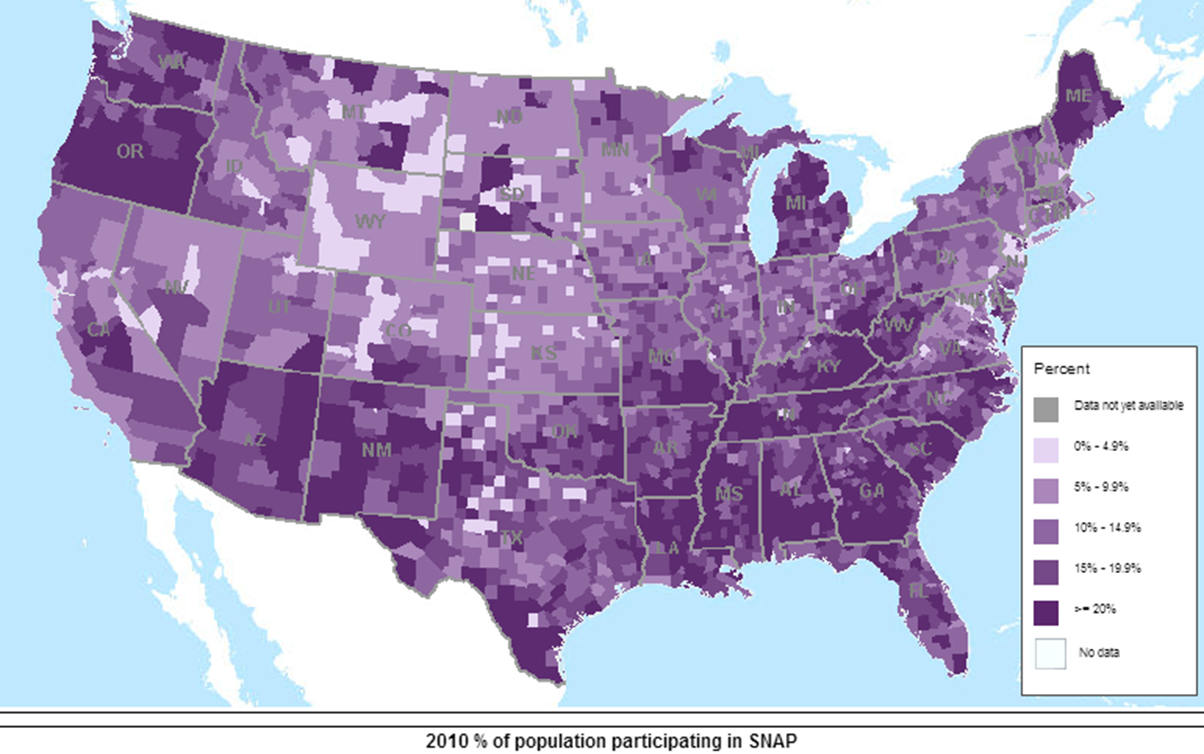From the beginning of time, humans have sought out each other to form community. “God did not make man to be alone”, “there is safety in numbers”, “it takes a village to raise a child” and countless other adages, quips, sayings and so forth exist about this topic. They all boil down to the same core point; we need other people for protection, to provide the things that we are unable to provide and for comradery just to name a few.
The goal of this article is to take a look at why you may want to consider forming a group, how we can find some likeminded people now, some things to consider before opening up your group to others, and some governing principles you may want to consider.
The Myth of Self-Reliance
While I think being self-reliant is a noble goal and that we should strive to be as self-sufficient and self-reliant as we can be, it is my belief that it is impossible to be truly independent of anyone else for all but the extremely wealthy.
Consider every item you’ve purchased over the last year; clothing, food, energy, paper goods, gasoline, self-defense items, entertainment. How many of those things did you have to rely on someone else to provide?
If someone owns acreage with a large garden, fruit trees and livestock and can grow all the food needed to feed themselves and their livestock, they have some of the biggest issues solved. Say they have enough solar panels to provide for all of their electricity and wood for heat. You might correctly assume that they are self-reliant.
Are they able to provide all of the labor needed to manage that property? How will they provide clothing? What if they need medical attention? Pay for taxes? All of these things mean they need to depend on others. If they produce a surplus from their land, both in terms of livestock and crops, they could sell that surplus to pay for some of these things, but then they would be dependent on people to purchase from them.
Where, oh Where, Oh Where Can They Be?
I am frequently asked, “where can one find likeminded people nearby, to get to know and possibly form a group with?” Here is every idea I have! I am hoping others add to it in the comment section.
Here is the most realistic answer, and one you might not like; your backyard. Through my church, I have been blessed to meet several other prepper’s, some of whom I’ve become close friends with. However, my church is 20 miles away and some of those close friends live even further than that! In a major survival event, the chances that we’ll be able to group up are low.
I’m not completely discounting the idea of forming long distance MAG’s (Mutual Aid Group). However, in the majority of small to medium scenarios, those that live near you, while possibly not as likeminded as we would prefer, are far more available.
Take these recent riots in Ferguson, MO. If one lived in Ferguson, they could have talked with their neighbors and agreed to watch over each other’s property. They could be from completely different political spectrums, but in that situation, an agreement could probably have been made for added vigilance. Now they might frown on what your response is if thugs try getting into one of your homes, but you don’t have to agree on every aspect to agree to look out for each other and keep each other alerted.
How can you introduce the subject of preparedness or an agreement to have each other’s backs? As with anytime you talk to others about preparedness, speak in generalities and don’t let on to how prepared you are.
This isn’t a one size fits all question. If you don’t know your neighbors well, consider getting to know them first. You might find out they are not the kind of people you want to be grouped with, or you might find they are the perfect prepping neighbor!
Social media isn’t going away, and it can be a great tool. You could create a facebook group and invite all of your neighbors. There is, however, an alternative, specifically created for this called Nextdoor.com. It is a social networking site for neighbors; you can find out more Nextdoor.com here.
Another way you could build relationships within your community is by having a block party/potluck. Everyone could bring a different side dish and their own main dish and you could grill.
One solid way to gauge someone’s level of interest or acceptance of prepping is through gardening, sharing your extra produce. Conversations about the extra veggies can lead to the reasons you grow them, which can lead to conversations on preserving, which can lead to conversations on having some extra food around. While they might not have a garden, you could offer to teach them how to can, freeze and otherwise store veggies they might buy at the local farmers market.
You could gauge someone’s willingness for an agreement to watch each other’s backs by their interest in a neighborhood watch. You could provide the neighborhood crime statistics from the local police department. If people aren’t interested, you’ve planted a seed. If things start to fall apart, they’ll probably be much more interested, and you’ve already laid the groundwork.
What Kind of People Should You Group With?
I think you should group with people that are as likeminded as possible. You might think I would say only Christian, but I have met some great non-believers, and have met some Christians that I don’t care to spend another minute with this side of heaven. To be ideal for me, it would be a group of preparedness-minded believers in Christ, because I think that could have a lot of upside. More on this later.
There are preppers from all walks of life. There are extremists from both sides of the spectrum. There are actually the stereotypical Rambo-wannabe-survivalists, and there are pot growing, tree hugging hippies. To me the term “Preppers” means anyone who prepares. So, if you’re forming a group or looking to join one, make sure they are truly your type of preppers.
Not In Your Area
Let’s say that you, for whatever reason, really want to look for people outside of your neighborhood to group up with. If you’re seeking them out online, you’ve probably already determined they are at least preparedness-minded. If they’re smart, they won’t divulge how well prepared and neither will you. I, personally, would be hesitant to trust someone who is a completely open book unless they’ve got a good reason to be. If you’re looking to join with them, anyone else they’ve been an open book with is now a liability to you. On the other hand, someone who is vague and cannot or will not answer direct questions that don’t reveal their complete level of preparedness should raise some concern as well.
I suppose there are different reasons to look for someone to join with that lives outside of one’s area. For the sake of this article, my reason is to have a remote bug out location. Before I would consider meeting in person, I would get to know them as best as I could online. If you meet on a forum, search through their old forum posts. If you meet on facebook, look through their old postings. Spend some time getting to know them via email.
Before you go in person, make sure their situation is what they claim it to be. If you have the address, doing a satellite map search will show you the approximate terrain but won’t show you the exact boundaries of the land they own. If they claimed it to be on a lake and the lake is five miles away, that would be a hint that something isn’t right.
Here are some resources I have found that can aid in finding likeminded people. I am not endorsing any of them, and if you decide to use them, please use caution.
ArkHaven Ministries: Acts Model Christian Community.
PrepperLink: Social media outlet for preppers.
AbleHaven: Social network for wandering families.
PrepperGroups.com Blog and forum
American Preppers Network One of the largest forums with the goals of connecting people in your area.
Meet Up Not just for prepping, but a great way to connect with those near you interested in various topics.
Other ways to connect with prepper’s is by conversation on facebook and twitter. I haven’t been a regular to any forums in years but I know there are some very high quality ones out there.
If you have a suggestion please post it in the comment or via email to Chris {at} preparedchristian [dot] net and I will add it to this list.
Interview Potential Members
I would really treat a meeting with potential group members as a job interview. You don’t need to know how many beans they’ve got but knowing what got them interested, when they started, if their family is on board, what they would do if money was no object are pertinent questions. Ask questions about them and their preparedness journey; how they handle conflict, what benefits they see in a group, what potential conflicts they might see, etc. Ask questions that matter to your group. If you think it is important that every child learn to shoot and every adult carries a firearm, you might want to see if that is a problem as well.
My all-time favorite prepper fiction book is Lights Out. I think this is probably the most realistic depiction of how things would unfold in a large scale event. One of the things I liked is that the group of neighbors in Lights Out have limited space but realize they need to bring in other people. They decide to bring in people that complement their skills sets.
If you decide to form a group with others, it might be a good idea to do the same. If you’re an avid hunter with all the gear one could possibly need but have no idea how to grow a carrot, someone with gardening experience might be a good idea. More than a few people have contacted me or written a comment that they would really like to join a group. The best advice I can give you is to know various skills.
Your physical condition and the equipment you bring to the table could matter. If things go sideways and I form a group, if an elderly person who has gardened all their life and knows what will grow in this area, how to propagate, how to store excess, etc. is looking to join, in my opinion, they are just as valuable as a 25 year old man who is in great shape and is willing to work. I’m simplifying this because it would really depend on what holes my group had but you get the idea.
Leadership and Conflict Resolution
If your group consists of more than a couple families, coming up with some form of leadership might be a good idea. I mentioned before that in my ideal group it would be like minded Christian preppers and I would add “that I get along with”. The reason for this is that we are given a leadership model in the book of Act’s; a group of people chosen to be the head, all looking to Christ for Guidance. Acts doesn’t get into the nitty-gritty of the workings of this group but I would imagine they spent time together to discuss important topics, each giving their take on the subject. I imagine they prayed together, seeking Gods will on important topics. We’re told they rolled bones to decide who would join as a Disciple; this tells me that even they had a hard time now and then knowing His will. We’re also told they delegated some lower responsibilities to other trusted people.
We’re given a good guide as to what the standard should be for the leadership council. To me, the same standards suggested for an Elder in 1st Timothy 3:2-7 and Acts 6:3 make good sense;
“So an elder must be a man whose life is above reproach. He must be faithful to his wife. He must exercise self-control, live wisely, and have a good reputation. He must enjoy having guests in his home, and he must be able to teach.
He must not be a heavy drinker or be violent. He must be gentle, not quarrelsome, and not love money.
He must manage his own family well, having children who respect and obey him.
For if a man cannot manage his own household, how can he take care of God’s church?
An elder must not be a new believer, because he might become proud, and the devil would cause him to fall.
Also, people outside the church must speak well of him so that he will not be disgraced and fall into the devil’s trap.”
Act’s 6:3
“And so, brothers, select seven men who are well respected and are full of the Spirit and wisdom. We will give them this responsibility.”
I don’t know that I would say being a man was a qualification, but I think the same standards should apply to women who want to be in the leadership role.
If your group is formed the group decides who will be in charge, I would make sure there is a contract of sorts in place; something that places some checks and balances on the leader and offers protection to everyone.
I think that no matter what leadership route you take, a contract is a good idea. On it, have an agreement that no one will sue anyone for any reason; deal with your strife internally.
Jesus gave us the model for this in Mathew 18:15-17:
”If your brother sins against you, go and show him his fault, just between the two of you. If he listens to you, you have won your brother over.
But if he will not listen, take one or two others along, so that ‘every matter may be established by the testimony of two or three witnesses.
If he refuses to listen to them, tell it to the church; and if he refuses to listen even to the church, treat him as you would a pagan or a tax collector.”
Even if you join with a group not using a Christian model, deal with your “stuff” internally. If someone wrongs you and refuses to make it right, there is mediation. If they break the law and we are living in a time where the rule of law stands, have them arrested. If we are WROL, take it to the leadership head and deal with it internally.
I hope I have been able to give you some things to consider and some resources to use to find others. If you have any, please add them to the comments.
Please click here to vote for Prepared Christian as a top Prepper site!
If you liked this article please think about sharing it on the social media listed below, thanks!








